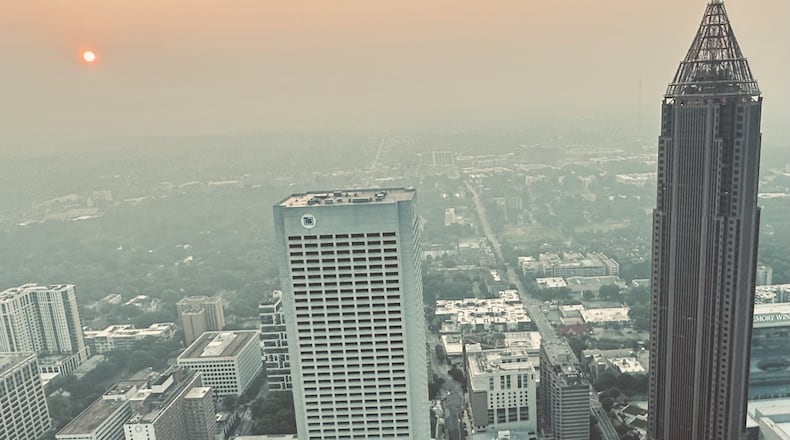Smoke from Canadian wildfires has drifted across the border and is affecting the air quality in the northeast United States. As a result, those in Atlanta are seeing hazy skies again Tuesday morning as the smoke creeps further south.
Where did it start? Hundreds of wildfires have been burning across Canada for months, with more than 900 active fires having already burned 26 million acres as of Tuesday. That has far exceeded the 17,500-acre record set in 1995, according to the Canadian Interagency Forest Fire Centre, and has prompted the evacuation of thousands.
Warnings in U.S.: Smoke blowing into the northern U.S. is causing hazardous air quality conditions for several states and prompting warnings for all individuals to stay inside, especially in the Great Lakes region. On Monday morning, Chicago and Detroit woke up to some of the worst air quality for major cities worldwide, according to IQ Air’s live ranking.
Georgia’s peachy skies: Strong winds started blowing smoke into the Southeast on Monday. In Atlanta, the haze draped over the city by the afternoon and greeted early risers with a hazy, peachy sky Tuesday morning.
The air that we breathe: With a Code Orange air quality alert in effect, those who are sensitive to pollutants should stay indoors as much as possible. That includes people who suffer from allergies, asthma or other respiratory issues, especially children or older adults. That is because, with a diameter 30 times smaller than human hair, the particles carried in the smoke are small enough to get deep into the lungs and even the bloodstream. Short-term problems include allergies but could cause lung or heart disease in the long term, according to the U.S. Environmental Protection Agency.
Where will it go? The smoke should clear out of the metro area overnight Tuesday but will continue drifting southeast toward the coast.
About the Author
The Latest
Featured


